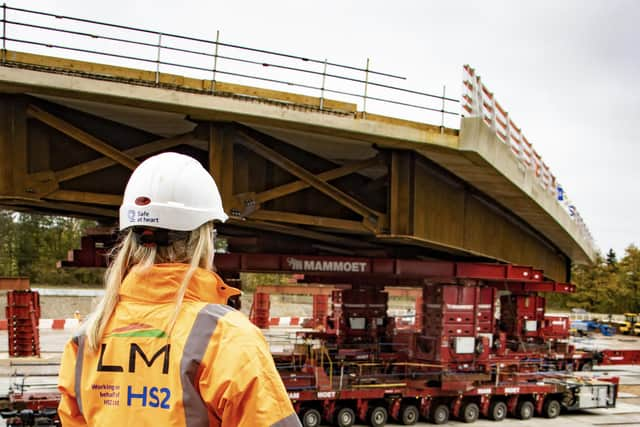The UK and Scotland need to learn how to build things again - Conor Matchett
If you have been reading the Scotland on Sunday for a while, you will know that I have a personal interest in the ongoing political scandal that is the two ferries being constructed at the Ferguson Marine shipyard.
Now I will not bore you or re-hash the details of the major plot points or characters at play, enough has been written on that to last several lifetimes of an island ferry.
Advertisement
Hide AdAdvertisement
Hide AdInstead, the Glen Sannox and the soon-to-be-named hull 802 (I quite like the suggested name ‘Claymore’, as it at least serves some reminder of the political damaged caused by its construction) are a metaphor for the Scottish aspect of what has become a very British problem.


The UK – seemingly across any sector and any level of government – has simply forgotten how to build anything.
In Scotland, there are several examples of construction projects gone wrong, either through mismanagement or building errors such as at the Edinburgh Sick Kids, or never-ending consultations and redesigns such as with the long-promised dualling of the A9
Further south and you have the national embarrassment that is HS2.
No other developed country (okay, apart from the USA) with the history of railway so intertwined with its success would manage to comprehensively cock up building what is – in all honesty – something that should be really, exceptionally simple.
I am a big fan of a YouTube channel called ‘Jet Lag’, the premise of which is two teams playing silly games like Capture The Flag, Connect 4, and Tag, using public transport. Their last challenge was set in Japan, a country whose public rail system in all of its complexity, efficiency, and brilliance may as well have appeared in the fever dream of an avid Rail Magazine reader.
HS2 has been blighted by many things, not least ‘Treasury brain’, the argument that short-term cost increases outweigh all long-term benefits and lead to hundreds of millions wasted as plans change or are dropped midway through the construction.
This phenomenon – as highlighted by Sam Freedman in a recent post on Substack – is essentially a “short-termist approach to public spending”.
Advertisement
Hide AdAdvertisement
Hide AdThat, twinned with the equally destructive existence of in-built nimbyism in every planning system across the UK, has led us down the path where our infrastructure is crumbling and we can’t seem to build anything to replace it.
And, when we try, it seems to immediately go wrong at great expense.
Urban housing is another example where nimbyism and this failure of infrastructure investment actively hurts every high level target, be it economic growth or protecting the environment.
Locals will block new housing in their area – often due to traffic concerns or a lack of facilities – only for rents to go up, mortgages to become unaffordable, pushing people to move out to commuter towns, worsening the already creaking pressure-hit infrastructure systems.
Most depressingly, none of our politicians appear willing or able to counter this vicious cycle with it viewed as easier to call off or significantly alter major projects for fear of being seen as financially profligate.
Ultimately, this political cowardice hurts the environment, our wallets, and the economy. It is hideously counter-productive.
Comments
Want to join the conversation? Please or to comment on this article.
